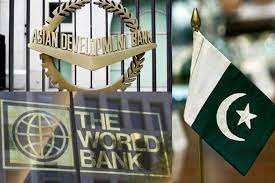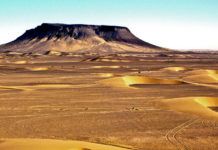Web Desk
Pakistan and the World Bank have signed a memorandum of understanding (MoU) to jointly cope with the challenge of climate chanage, presently posing a big threat to the South Asian nation.
According to the Prime Minister’s Office, under the agreement, Pakistan will be assisted in implementing the Nationally Determined Contributions under the Paris Agreement.
Speaking at the MoU signing ceremony in the capital Islamabad, Prime Minister Imran Khan said that Pakistan was among the top 10 countries most vulnerable to climate change despite having carbon emissions of less than one per cent.
“That is why it is important for the nation to realise that we must take steps to avert climate change for our coming generations.”
The premier said that he had seen the effects of global warming throughout his life. “Around 20 to 25 years ago, people who used to live in villages and mountainous regions started to say that temperatures are rising […] they complained that the amount of rainfall had decreased and it had become hotter.”
PM Imran lamented the fact that the world did not acknowledge climate change for a long time. “Countries which emit the most carbon realised this very late.”
He said that at the 26th Conference of the Parties to the United Nations Framework Convention on Climate Change, which took place last year in Glasgow, it was evident that the world was now largely acknowledging climate change.
“If we don’t take meaningful and strong steps, then major parts of the world will suffer the negative effects of weather pattern changes.”
He said that temperatures were soaring in Siberia while wildfires were blazing across Australia and the US state of California.
Commenting on Pakistan, he premier said that climate change was affecting cities and glaciers which made it necessary to implement nature-based solutions.
He added that his government’s Ten Billion Tree Tsunami Programme was essential for protecting Pakistan’s dwindling forests. “When we conducted digital cadastral mapping, we discovered that so many of our forests only exist on paper.”
He stressed on saving the country’s forests and increasing plantation campaigns.
About national parks, the premier said that during his childhood there was a lot of wilderness in the country that had slowly shrunk over time.
“We need to preserve existing parks and make new ones,” he said, adding that the federal government had so far declared 15 new national parks. Locals will be trained to protect these parks, he said.
He said that the government had initiated a plantation campaign in barren areas in Dera Ismail Khan because of which wildlife had returned. This in turn has had an impact on the residents and also developed the areas for tourism, he said.
The prime minister said cities in the country were spreading rapidly and encroaching on green areas, adding that it was necessary to curb expansion as it would make it impossible to prevent air and water pollution.
He said that the government was working on master plans for all cities which would approximately be ready in six months to a year.















